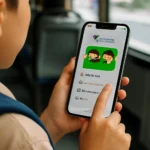Have you ever wondered how learning habits developed in elementary school can last a lifetime? Discover the importance of developing effective study techniques in early childhood and how it influences lifelong learning.
How Learning in Elementary School Shapes Long-Term Study Habits
When it comes to lifelong learning, the foundation begins early, often during elementary school. Establishing strong study habits at a young age can set the stage for continued success throughout one’s life. But how does learning in elementary school contribute to effective lifelong study habits? Let’s break it down.
Developing effective study techniques as a child can have a profound impact on an individual’s learning throughout their life. Here are a few critical elements that should be instilled during the elementary school years:
-
Time Management Learning how to balance schoolwork and personal time is crucial. Children who learn to manage time effectively from an early age often develop better organizational skills that help them as they grow.
-
Focus and Concentration Fostering focus during study periods can help children better retain information and complete tasks more efficiently.
-
Curiosity and Critical Thinking Encouraging children to ask questions and seek deeper understanding nurtures their curiosity, which is essential for lifelong learning.
-
Self-Discipline Instilling a sense of responsibility for one’s own learning is key. Students who learn to prioritize their work and meet deadlines develop self-discipline that stays with them through adulthood.
-
Resourcefulness Teaching students how to use a variety of learning tools—from books to online resources—can encourage them to seek answers independently and think outside the box.
These early lessons are more than just preparation for exams; they are the groundwork for becoming an adaptable, independent learner throughout life.
How Early Learning Practices Impact Long-Term Success
The habits students form in elementary school often dictate how they approach learning in higher education and beyond. Students who are taught to love the learning process, rather than merely focusing on grades, are more likely to engage with their education throughout their lives. Here are a few ways early learning habits translate into lifelong benefits:
-
Adaptability to New Information Learning to study efficiently in elementary school helps children develop the ability to absorb and adapt to new information at any stage in life.
-
Building Confidence in Self-Learning When students realize they can learn things on their own, they develop confidence in their abilities and are more likely to pursue new challenges.
-
Lifelong Learning Mindset Students who are taught to appreciate knowledge for its own sake, rather than as something to simply pass tests, are more likely to continue seeking out knowledge and growing intellectually throughout their lives.
-
Resilience and Persistence The resilience learned through overcoming difficult topics or assignments in elementary school can help students face future academic and personal challenges without giving up.
-
Collaboration Skills Early group projects or collaborative learning experiences help children develop teamwork skills that are beneficial in every aspect of life.
By incorporating these elements into elementary school study routines, children are better prepared to embrace the learning challenges that come their way in later years.
Discover more about lifelong learning techniques for kids!
How To Study Well for Elementary School Students
Study techniques for elementary school students don’t just revolve around sitting quietly with a textbook. In fact, incorporating a variety of methods can make learning much more effective and engaging. Let’s take a look at strategies that will help students thrive both academically and beyond:
-
Active Learning Instead of passively reading notes, students should engage actively by summarizing, asking questions, and discussing what they’ve learned.
-
Visualization Using diagrams, mind maps, and other visual tools helps students retain information better and understand complex ideas more clearly.
-
Setting Goals Breaking down large projects or assignments into smaller, manageable tasks can prevent students from feeling overwhelmed.
-
Practice Testing Frequent quizzes or self-tests help reinforce material, making it easier to recall and apply later.
-
Use of Technology Educational apps and games are a fun and interactive way for children to learn new concepts while reinforcing what they’ve already studied.
Additionally, creating an environment that promotes good study habits is just as important as the study methods themselves. A quiet space with minimal distractions, consistent study times, and a supportive learning environment can encourage focus and productivity.
Learn more about effective study routines for kids!
How to Study for a Lifetime When You Start Early
The true essence of studying for a lifetime is the mindset cultivated in the early stages of education. Children who start learning with an open, curious mind and positive study habits are more likely to carry these traits into adulthood, where they’ll continue their journey of lifelong learning. But what exactly does studying for a lifetime entail?
-
Continuous Curiosity Instilling a love for learning in children ensures that they remain curious and willing to explore new topics throughout their lives.
-
Building Strong Foundations Early mastery of fundamental skills like reading, writing, and math gives students the tools to learn more complex topics in the future.
-
Focus on Personal Growth When students are taught that learning is not just about grades but personal development, they are more likely to seek improvement in every aspect of their lives.
-
Fostering Independence Encouraging self-directed learning and independent problem-solving early on builds the skills necessary for lifelong academic and professional success.
-
Motivation for Self-Improvement Students who see the value in learning outside of the classroom, such as through hobbies, books, or online courses, are more likely to pursue personal growth throughout their lives.
Children who are taught how to learn—rather than simply what to learn—develop the skills necessary for adapting to new technologies, careers, and opportunities that they will encounter as they grow older.
Find more tips on how to encourage lifelong learning in kids!
Conclusion
The habits and skills learned in elementary school set the stage for a lifetime of successful learning. By establishing time management, focus, curiosity, self-discipline, and resourcefulness early on, children develop the tools they need to succeed in education and beyond. Moreover, instilling a love for learning that goes beyond grades ensures that students continue to grow intellectually throughout their lives. These foundational habits don’t just help children in school—they shape them into lifelong learners. The earlier these habits are taught, the more likely students will carry them forward into adulthood, where learning remains an ongoing, enriching experience.
“Education is the most powerful weapon which you can use to change the world.” – Nelson Mandela.






